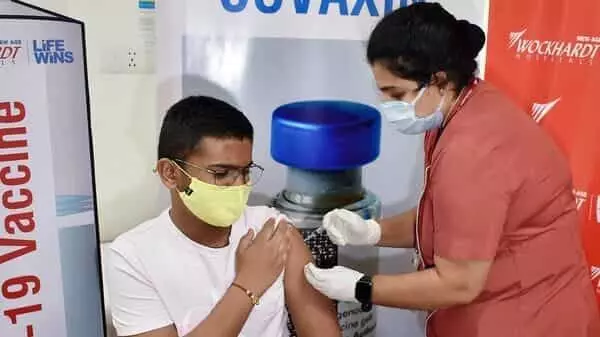
Covid may make kids more likely to develop type 1 diabetes
text_fieldsLondon: According to a new study, children and adolescents who test positive for SARS-CoV-2, the virus that causes Covid-19, have a greater chance of developing type 1 diabetes for the first time.
In comparison to children without a recorded infection (0.08%), the study indicated that at least 0.13 per cent of children and adolescents who contracted Covid-19 had type 1 diabetes identified at least a month after infection.
"Our nationwide study suggests a possible association between Covid-19 and new-onset type 1 diabetes," said researcher Hanne Lovdal Gulseth, lead author and Research Director at the Norwegian Institute of Public Health, IANS reported.
It has long been suspected that type 1 diabetes, which is usually diagnosed in younger people and is associated with the failure of the pancreas to produce insulin, is a result of an over-responsive immune reaction, possibly due to a viral infection, including respiratory viruses.
For the study, presented at the European Association for the Study of Diabetes (EASD) Annual Meeting in Stockholm, the research team linked individual-level data from national health registries for all children and adolescents in Norway (1,202,174 individuals). Children were followed from March 1, 2020 (the start of the pandemic) until the diagnosis of type 1 diabetes, they turned 18 years old, died, or the end of the study (March 1, 2022), whichever occurred first.
The researchers examined the risk of young people developing new-onset type 1 diabetes within or after 30 days after PCR-confirmed SARS-CoV2 infection.
They compared this group with children and adolescents in the general population who did not have a registered infection, as well as to a group of children who were tested but found to be negative for the virus.
Over the 2 year study period, a total of 424,354 children tested positive for SARS-CoV-2 infection and 990 new-onset cases of type 1 diabetes were diagnosed among the 1.2 million children and adolescents included in the study.























